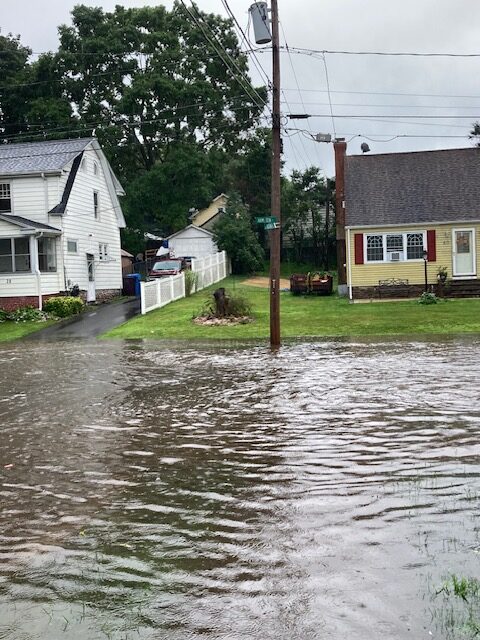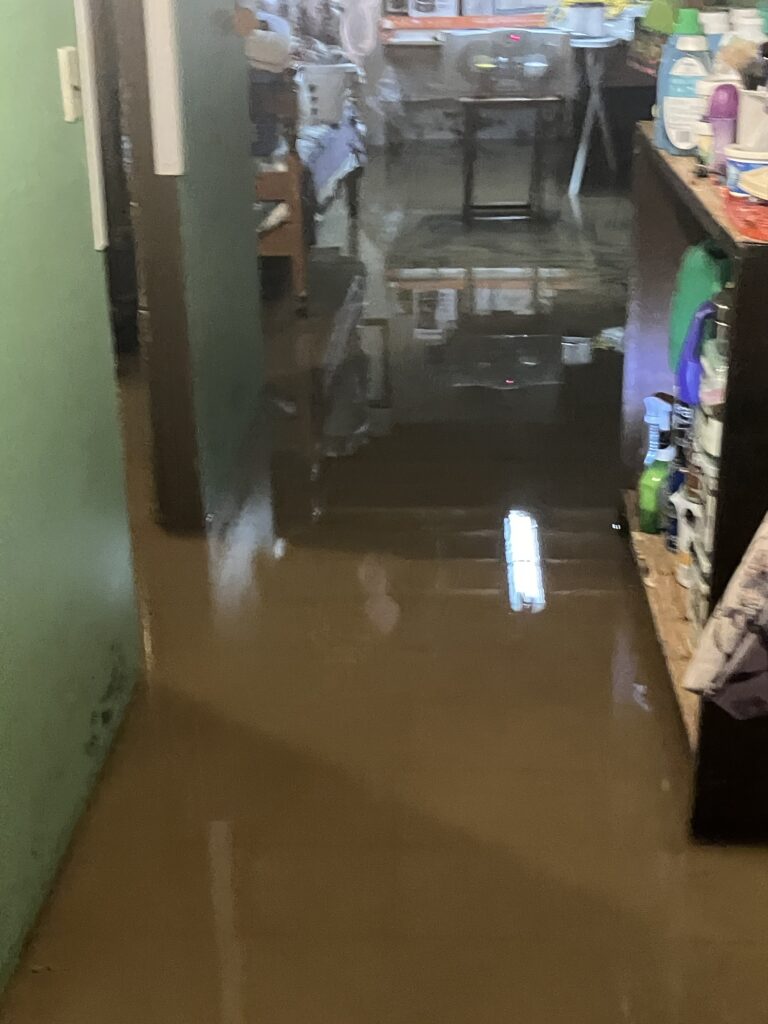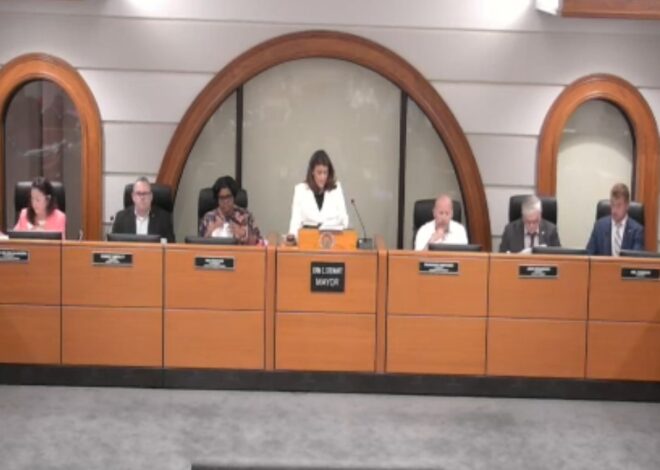
Claims For Flooding Damages Spiked in 2023
City Starts ‘Courtesy’ Response Service; Homeowner Flood Relief Is On Council Agenda
By John McNamara
More New Britain property owners are seeking compensation from the city for property damage caused by storm water flooding and sewage overflows, according to caseloads recorded by the city’s Corporation Counsel in recent years.
The Corporation Counsel “handles claims and lawsuits filed against the City of New Britain” including personal injury, workers’ compensation and property damages. Over four years (2020-2023) 168 claims were filed for various damages and personal injuries. In 2020 (4) and 2021 (5) property owners brought nine sewer/flooding claims. In 2022, seven were recorded. Through 2022 less than 15 percent of cases involved sewer and flooding problems. In 2023, however, the sewer back-up cases increased to 26 accounting for 41 percent of 2023 cases. Over the four years $179,503 claims have been approved involving 15 property owners “as the result of flooding” based on data from the Corporation Counsel.
The increase in claims stems from frequent and intense storms that have overwhelmed the city’s aging stormwater and sewage system in vulnerable neighborhoods. The outmoded storm water-sewage system has caused problems for decades, with homeowners incurring out of pocket expenses and loss of insurance since the 1990s.
City Hall Update
Through the FLUSH program (Fresh Line For Upgrades for Sanitary Health) and the Capital Improvement Program (CIP) the city’s Department of Public Works has identified projects over the last decade that will replace lead pipes and aging and broken infrastructure to reduce the risk to residences and neighborhoods. These projects require more investments from local, state and federal sources to be completed. Over decades, however, the city has pushed bonding for sewage projects down the road, preferring to wait for federal grants and using municipal borrowing for other purposes.
Since the summer of 2023 the dramatic jump in flooding has led to a public outcry, especially from residents in the Overlook Avenue-McKinley Drive and Allen Street area near CCSU. Only in the last year, thanks to public pressure, has progress been made on capital funding for Allen and Overlook where extensive damage occurs.
“Rapid Response” Service And Neighborhood Flood Relief Initiative
Responding to the flooding damages and public pressure, the Stewart Administration via the Corporation Counsel recently rolled out a “rapid response service” as part of the FLUSH program. Described as a “courtesy” program “to promptly address sanitary sewer claims upon homeowner contact with the city” the service involves the Department of Public Works (DPW) determining if city sewer mains cause back-ups. The homeowner will then be offered restoration services from Apple Valley Servicemaster, a partner with PMA, the city’s third party risk manager and insurance underwriter for liability claims.
According to a DPW official, homeowners must contact the city as soon as the back-up problems occur and, if deemed eligible, “it is highly recommended” that they use Apple Valley to mitigate the damages of flooding. The courtesy service “automatically starts the claim process if the homeowner signs on to Apple Valley Servicemaster.” Otherwise owners may seek other firms to address flooding and also retain the right to file claims to recover their out of pocket expenses. “Rapid Response” is similar to services in the cities of Stamford and West Haven, according to the Corporation Counsel.
Common Council Democrats have proposed a neighborhood flood relief initiative to “provide immediate and direct relief to homeowners whose properties are damaged by storm water and sewage when extreme weather leads to flooding and damages.”
“In lieu of capital improvements and other long-term mitigation activities,” a September resolution states, “a Neighborhood Flood Relief Pilot Program can provide immediate and direct relief to homeowners whose properties are damaged by storm water and sewage when extreme weather leads to flooding and damages.”
The neighborhood flood relief initiative will be the subject of a public hearing on Wednesday, November 6, at 6:30 p.m. before the Common Council’s Administration, Finance, Law and Public Services Committee.
Meeting Notice
The pilot program will provide a grant up to $7,500 to owner-occupied dwellings of up to 1 to 3 units on a first-come, first-served basis to reduce or eliminate the risk of repeat damage to basements, buildings and mechanical systems not covered by insurance or other sources. The flood relief initiative is meant to compliment the rapid response service which only begins when storms occur and property damage is occurring. The neighborhood flood relief proposal equips property owners with devices and services to prevent damages thereby reducing the need for new claims against the city. Modeled after a Hartford program in the capital city’s north end neighborhoods, grants would fund sump pumps, French drains, lateral replacement, window wells, basement windows, gutters, drain snaking , video camera inspections, sewer jetting, basement cleanouts, new boilers, hot water heaters, electrical components and mold remediation.
The resolution calls for use of an estimated $500,000, which is a portion of an additional municipal aid received from the state legislature for the current fiscal year. “This initiative is a start at reducing damages to homes as the city seeks state and federal support for capital improvements to modernize the failing sewer and stormwater system,” proponents say.
The neighborhood flood relief initiative will be the subject of a public hearing on Wednesday, November 6, at 6:30 p.m. before the Common Council’s Administration, Finance, Law and Public Services Committee.
John McNamara is an alderman from Ward 4 and the Common Council Majority Leader. He has been sharing stories and writing about local government and the community on his nbpoliticus.com blog since 2006.




